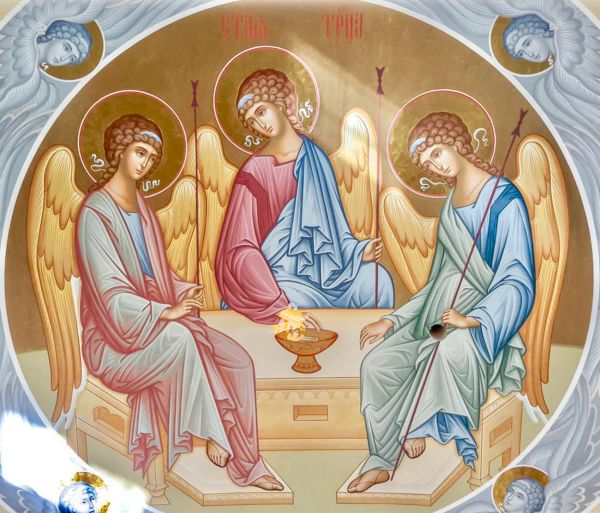In the second distribution of the loaves and fishes, Mk highlights Jesus' compassion for the exhausted and hungry crowd, who follow him, to whom he gives food.
The Poor Man of Assisi had received as a gift a tender heart, with compassionate innards for every creature.
A wonderful passage from the Sources tells us:
"True piety, which, as the Apostle says, is useful for everything, had filled Francis' heart, penetrating it so intimately that it seemed to totally dominate the personality of that man of God.
Piety elevated him to God by means of devotion, transformed him into Christ by means of compassion, made him turn towards his neighbour by means of condescension and, reconciling him to all creatures, brought him back to the state of primitive innocence.
By it he felt great attraction towards creatures, but in a special way towards souls, redeemed by the blood of Christ Jesus; and, when he saw them polluted by the ugliness of sin, he pitied them with such tender compassion, that every day he bore them, like a mother, in Christ" (FF 1134).
It was the same compassion that flooded him and made him tremble before the Bread of the Word and the Eucharist.
We read:
"We know that there can be no body if it is not first sanctified by the word.
For we possess and see bodily nothing in this world of the Most High Himself except the body and blood, the names and words by which we were created and redeemed 'from death to life'" (FF 207).
And in the paraphrase of the Our Father:
"Our daily bread, your beloved Son, our Lord Jesus Christ, give us this day: in remembrance, understanding and reverence of the love he had for us and of all that for us he said, did and suffered" (FF 271).
Wondrous Tenderness!
«I have compassion on the crowd, for [it is] already three days that they remain with me and have nothing to eat, and if I dismiss them fasting at their house, they will fail in the way; and some of them have come from afar» (Mk 8:2-3)
Saturday 5th wk. in O.T. (Mk 8,1-10)












